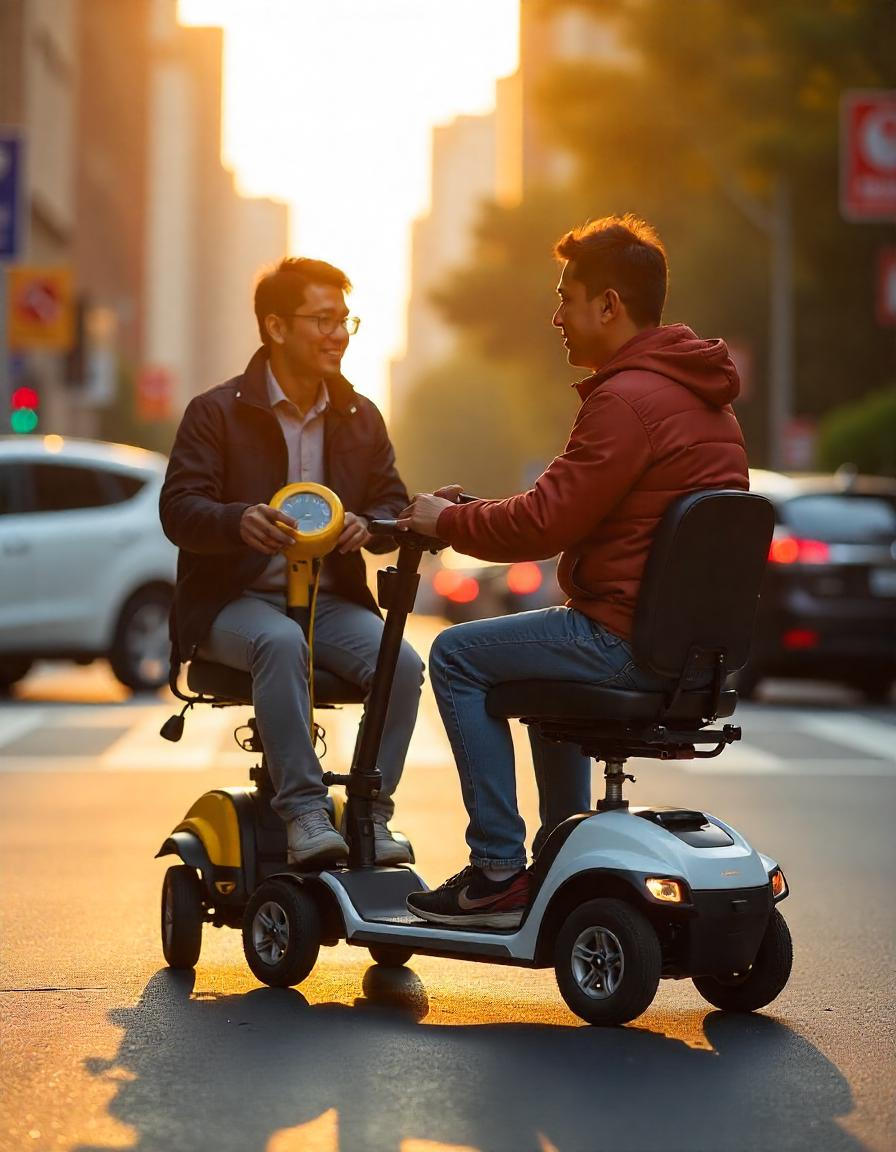Mobility scooters offer life-changing independence, but they’re not perfect for everyone. Here’s a balanced look at their benefits and drawbacks to help you decide if one suits your needs.
 Key Benefits of Mobility Scooters
Key Benefits of Mobility Scooters
1. Enhanced Independence
- Regain freedom to shop, socialize, and move around without relying on others
- Maintain an active lifestyle despite mobility challenges
2. Improved Comfort
- Padded, adjustable seats reduce strain during longer outings
- No more standing fatigue in queues or crowded places
3. Cost-Effective Mobility
- Cheaper than modified vehicles (starting around $800)
- Lower maintenance costs compared to power wheelchairs
4. Easy to Operate
- Simple controls (typically joystick or tiller steering)
- Most models require no special license for pavement use
5. Customizable Options
- Add-ons like baskets, oxygen holders, or weather covers
- Adjustable speed settings for different environments
 Potential Drawbacks to Consider
Potential Drawbacks to Consider
1. Limited Terrain Handling
- Most struggle with steep hills, sand, or deep gravel
- Only all-terrain models handle rougher paths (at higher cost)
2. Transportation Challenges
- Heavier models (100+ lbs) require ramps or special vehicle lifts
- Public transport access varies by location
3. Maintenance Requirements
- Regular battery charging (every 2-5 days with frequent use)
- Tire replacements and electrical checks needed annually
4. Social Perceptions
- Some users report feeling self-conscious initially
- Not all buildings have adequate scooter parking
5. Physical Limitations
- Requires sufficient upper body strength to steer
- Transferring on/off may be difficult for some users
Who Benefits Most?



Who Might Prefer Alternatives?



Making the Decision Easier
- Try before buying – Many medical suppliers offer test rides
- Consult your therapist – They can assess if a scooter meets your physical needs
- Check local laws – Some areas have pavement speed limits (typically 4-8 mph)

Leave a Reply